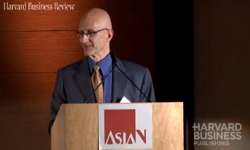80 years have passed since The Stranger was published. It has been 60 years since Algeria gained independence from France. Nonetheless, the concept of "Algerianity" still haunts contemporary Algerian writers like a ghost. The publication of K. Daoud's...
http://chineseinput.net/에서 pinyin(병음)방식으로 중국어를 변환할 수 있습니다.
변환된 중국어를 복사하여 사용하시면 됩니다.
- 中文 을 입력하시려면 zhongwen을 입력하시고 space를누르시면됩니다.
- 北京 을 입력하시려면 beijing을 입력하시고 space를 누르시면 됩니다.

삶의 영토는 상상(사유)의 영토와 분리되는가? -K. 다우드의 『뫼르소, 살인사건』을 중심으로- = Is the Realm of Life separate from the Realm of Imagination (Thought)? - Focusing on K. Daoud’s Meursault, contre-enquête -
한글로보기https://www.riss.kr/link?id=A108653022
-
저자
박치완 (한국외국어대학교)
- 발행기관
- 학술지명
- 권호사항
-
발행연도
2023
-
작성언어
Korean
-
주제어
A. Camus ; The Stranger ; K. Daoud ; Meursault ; contre-enquête ; Territoriality ; Socio-cultural Identity ; Cultural Community ; A. 카뮈 ; 『이방인』 ; K ; 다우드 ; 『뫼르소 ; 살인사건』 ; 재지성 ; 사회문화적 정체성 ; 문화적 공동체
-
등재정보
KCI등재
-
자료형태
학술저널
-
수록면
146-174(29쪽)
- DOI식별코드
- 제공처
-
0
상세조회 -
0
다운로드
부가정보
다국어 초록 (Multilingual Abstract)
80 years have passed since The Stranger was published. It has been 60 years since Algeria gained independence from France. Nonetheless, the concept of "Algerianity" still haunts contemporary Algerian writers like a ghost. The publication of K. Daoud's Meursault, contre-enquête can be considered a kind of "literary event" that summoned Camus and his novel, The Stranger, back into the "Algerianity" again. Today, Algerians are not willing to discuss Camus' The Stranger. The reason is that Algerians do not treat The Stranger solely as a literary work, but rather focus on Camus' sociocultural misunderstanding of "Algeria" and "Arabs" as depicted in The Stranger. In this regard, Daoud's Meursault, contre-enquête is a cross-examination of Meursault, the protagonist of Camus's The Stranger, while also providing a cross-examination of the writer Camus. By cross-examining Meursault and Camus simultaneously, Daoud ultimately urges to readers to call the "nameless Arab" innocently murdered in The Stranger as Moussa. In this respect, Moussa is not an “individual” but also represents the “cultural community of Algeria”. Meursault, contre-enquête has research value in that it reminds us that the question of individual existence and identity is closely linked to a community rooted in locality. Meursault, contre-enquête is a group-portrait of contemporary Algerians.
동일학술지(권/호) 다른 논문
-
- 동국대학교 동서사상연구소
- 김진근
- 2023
- KCI등재
-
디지털 미디어 플랫폼과 디지털 윤리학 -디지털 미디어 플랫폼 윤리를 위한 예비적 고찰-
- 동국대학교 동서사상연구소
- 허유선
- 2023
- KCI등재
-
옛 경춘선 경기권 폐역(廢驛)의 장소성과 문화-인문학 활용안
- 동국대학교 동서사상연구소
- 오준호
- 2023
- KCI등재
-
‘니담의 질문’에 대한 비판적 검토 -중국의 관료제를 중심으로-
- 동국대학교 동서사상연구소
- 허재수
- 2023
- KCI등재
분석정보
연관 공개강의(KOCW)
-

Strangers on the Shore
Teachers TV Teachers TV -

(MOOC) 차이나는 K-클라스 : 세상 '힙'한 요즘 노래, K-민요(이희문)
K-MOOC JTBC 이희문 -

C.K. Prahalad 과 Jeb Brugmann이 HBR McKinsey Awards를 수상하다
Harvard University Jeb Brugmann -

(수어) 차이나는 K-클라스 : 세상 '힙'한 요즘 노래, K-민요(이희문)
K-MOOC JTBC 이희문 -

(수어) 차이나는 K-클라스 : K-콘텐트, 80억 구독자를 잡아라!(원동연)
K-MOOC JTBC 원동연




 eArticle
eArticle KISS
KISS

